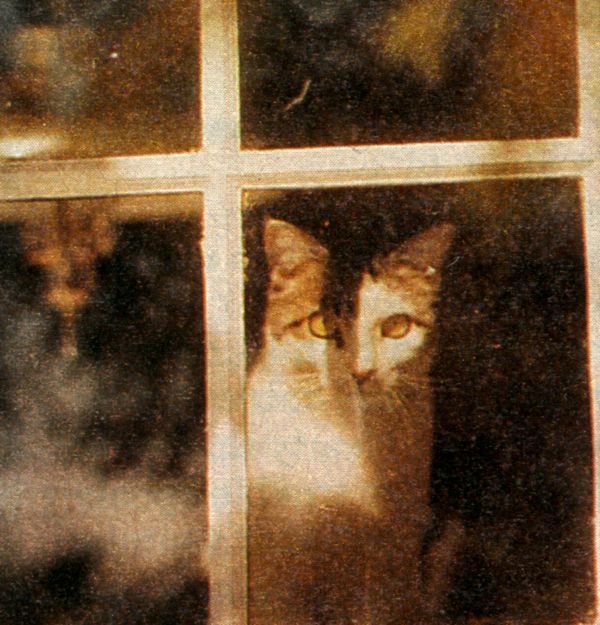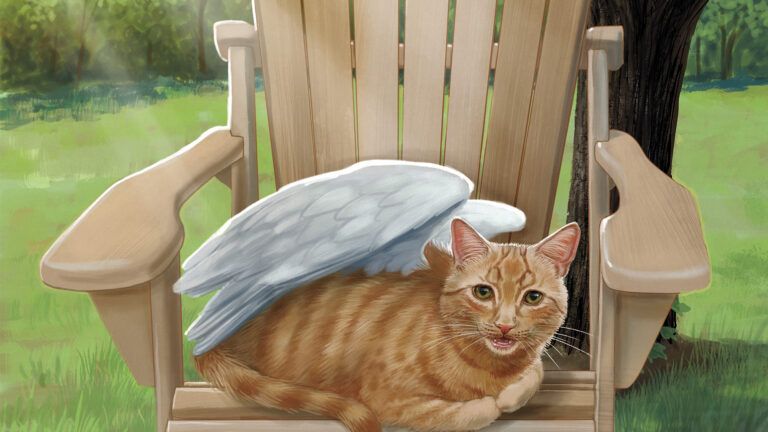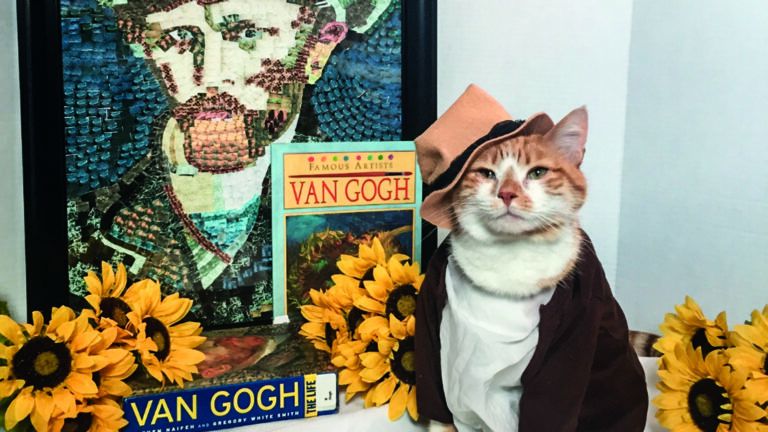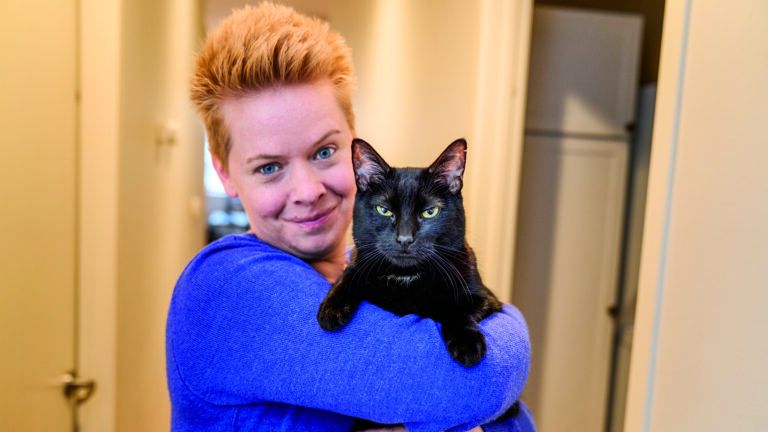Perhaps my antagonism toward cats dated from the time I used to chase them from my father’s fish pool with a garden hose. To me, cats were snooty creatures with an insouciant air of independence, not at all like good-hearted dogs, who slavered for attention and practically somersaulted for a pat on the head.
When my younger son, Kit, carried in a gray-and-white kitten he had found, I reluctantly accepted the new addition. Kit and his brother, Peter, named her Sweetie, and she soon made friends with our two dachshunds. But the cat and I were not close.
Everything changed when we moved to a small farm in northern Virginia, where Sweetie enjoyed roaming our barn and nearby field. One evening we returned from shopping to hear a plaintive cry from the barnyard. Out of the shadows came Sweetie, crawling on her belly. Kit picked her up and cried, “She’s been hurt!”
Her lower legs were in bloody shreds. Evidently she had been bush-whacked by a sickle from someone mowing the adjacent field. We called a local veterinarian, who said to bring her by in the morning. “She’ll be dead long before that,” gasped my wife, Betty.
We called a friend, who suggested a big-animal vet in nearby Leesburg. Although the vet was tending a sick horse at the time, he said to bring our cat right over.
Kit drove while I held Sweetie on my lap, cushioning her on a towel. As the headlights cut through the black trees lining the small dirt road, I found myself talking to Sweetie, praying for her and gently rubbing between her shoulder blades with my thumb. That seemed to soothe her.
The vet, William Rokus, met us at the door of his office. He was a giant man dressed in khaki, with hands the size of hams. What could he do for our pitiful bundle of fur?
The man gently took Sweetie, gave her a shot that knocked her out, and then sat down to work while Kit and I watched. An aura of compassion emanated from the huge man as he worked ever so patiently and carefully, those big hands expertly wielding suture and needle as he deftly stitched Sweetie’s shredded paws and legs.
Finally he handed me the cat, gave us instructions and medication, and told us that he thought Sweetie just might make it.
We drove home in silence. The next morning we coddled Sweetie, fed her warm milk and stroked her fur. Again I found myself rubbing her between the shoulder blades, and she cocked her head to squint up at me.
In a few days Sweetie was clumping around on plaster casts and before long was limping on paws that looked remarkably normal, thanks to the skill of veterinarian William Rokus.
Soon Sweetie was patrolling the barn again, but she never returned to the field. When an engine started up, she streaked from sight. She always had a slight limp, but it never seemed to bother her. When we moved to New York, she became a city cat, reigning over her yard and hissing off any creature that had the audacity to edge close.
But some kind of bond had been struck between Sweetie and me that night. When I read the paper or worked at my typewriter, a warm bundle of fur sprang into my lap to rest and purr. At night she curled on my pillow against my head.
Sweetie lived for 16 years, quite old for a cat. It has been a few years since she died peacefully in her sleep. But I still think of her. She taught me so much.
I learned that we should avoid prejudice, that we should not judge proficiency by appearance, and that God does listen to our prayers for animals.
I also discovered that everyone has a need when wounded, whether it’s for quiet companionship, a sympathetic word…or a gentle massage between the shoulder blades.





